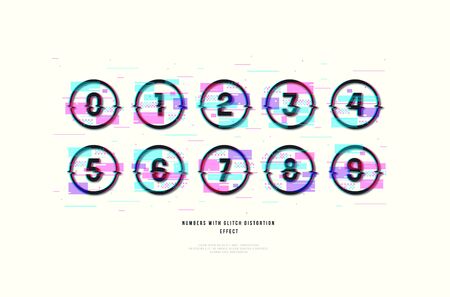Understanding the Glass Ceiling in the U.S. Workplace
The term “glass ceiling” is often used to describe the invisible barriers that prevent women from reaching the highest levels in their careers, especially in the United States. Even though more women are earning college degrees and entering the workforce than ever before, many still find it difficult to break into top leadership positions. This invisible barrier isn’t made of glass, but it’s just as hard to get through.
What Is the Glass Ceiling?
The glass ceiling is a metaphor for the unseen obstacles that keep women from climbing the corporate ladder, no matter how qualified or experienced they are. It can show up as subtle discrimination, lack of mentorship opportunities, or company cultures that favor men for promotions and important projects.
Key Factors Contributing to the Glass Ceiling
| Factor | Description |
|---|---|
| Unconscious Bias | Managers may unknowingly prefer male candidates for promotions or leadership roles. |
| Lack of Mentorship | Women often have fewer role models or mentors to guide them through career growth. |
| Work-Life Balance Expectations | Cultural expectations about family and caregiving can impact womens career choices. |
| Limited Networking Opportunities | Men often have more access to professional networks and informal gatherings. |
| Stereotyping | Assumptions about what women “should” do can limit their chances for advancement. |
How Does This Impact Women’s Careers?
The effects of the glass ceiling are far-reaching. Women may feel stuck in mid-level roles, earn less than male counterparts, or miss out on key projects that could lead to promotions. These challenges not only affect individual women but also organizations as a whole by limiting diversity at the top.
Why Is Overcoming the Glass Ceiling Still a Challenge?
Even with decades of progress and policy changes, breaking through these barriers remains tough. Many companies now have diversity initiatives, but real change takes time. The conversation around gender equality continues because invisible obstacles still exist—making it essential to explore new ways, like Bazi (Chinese metaphysics), to help women make smart career decisions and navigate these challenges in an American context.
2. Introduction to Bazi: Ancient Wisdom Meets Modern Career Paths
Bazi, also known as Four Pillars of Destiny, is an ancient Chinese metaphysical system that helps people understand their unique strengths, challenges, and life paths. While it has been practiced for centuries in Asia, more American women are now exploring Bazi as a powerful tool for making smart career decisions and breaking the glass ceiling.
What Is Bazi?
Bazi literally means “eight characters” in Chinese. These eight characters are derived from your date and time of birth. Each character represents an element or animal sign based on the Chinese calendar. Together, they form a personal blueprint that shows your personality traits, talents, and potential obstacles.
How Bazi Works
| Four Pillars | Description | What It Reveals |
|---|---|---|
| Year Pillar | Represents ancestry, background, and early influences | Family roots, social connections |
| Month Pillar | Shows work environment and close relationships | Career starting points, mentors |
| Day Pillar | Focuses on self and marriage | Personal strengths, decision-making style |
| Hour Pillar | Covers ambitions and future outlook | Long-term goals, creativity, legacy |
Bazi in the U.S.: A New Approach to Career Decisions
In the U.S., women face unique challenges in the workplace—from gender biases to balancing family and career. Bazi offers a fresh perspective by helping you:
- Understand your core strengths and how to leverage them at work
- Identify ideal career fields or leadership roles suited to your natural abilities
- Navigate difficult work relationships or office politics with more confidence
- Create strategies for growth based on your personal cycles of opportunity and challenge
Bazi vs. Western Career Tools
| Tool/Approach | Main Focus | How It Helps Women in the U.S. |
|---|---|---|
| Bazi (Chinese Metaphysics) | Personal destiny & timing based on birth data | Offers customized insights into strengths, blind spots, and timing for action |
| Meyers-Briggs (Western Psychology) | Personality type assessment | Helps with understanding working style and team dynamics |
| Counseling & Coaching (U.S.) | Cognitive & behavioral guidance | Provides support through skill-building and mindset shifts |
Bazi as a Decision-Making Tool for Growth
You don’t need to be an expert in Chinese culture to benefit from Bazi. By learning about your Four Pillars, you can make smarter choices about promotions, job changes, or even starting your own business. Many American women find that combining Bazi with familiar tools like coaching or mentorship programs gives them a clearer path toward breaking barriers at work.

3. Aligning Bazi Insights With American Career Ambitions
Bazi, also known as the Four Pillars of Destiny, is an ancient Chinese system that helps people understand their unique characteristics and life paths. In the context of breaking the glass ceiling in America, Bazi can give women valuable insights into their strengths and potential challenges. This information can be a powerful tool when aligned with core U.S. workplace values like leadership, innovation, and diversity.
Understanding Personal Strengths Through Bazi
Bazi readings reveal natural tendencies such as communication skills, adaptability, creativity, and resilience. For example, someone with a strong “Yang Wood” element might naturally be persistent and good at leading teams. Identifying these personal assets makes it easier for women to position themselves for leadership roles and innovative projects in American companies.
Table: Connecting Bazi Elements to U.S. Workplace Values
| Bazi Element | Key Strength | U.S. Workplace Value | Career Tip |
|---|---|---|---|
| Yang Wood | Persistence & Leadership | Leadership | Seek management or project lead roles |
| Yin Fire | Creativity & Inspiration | Innovation | Pursue creative fields or innovation teams |
| Yang Metal | Discipline & Fairness | Diversity & Inclusion | Advocate for fairness in HR or compliance roles |
| Yin Earth | Nurturing & Collaboration | Diversity/Teamwork | Focus on team-oriented positions or mentorship programs |
| Yang Water | Adaptability & Communication | Innovation/Leadership | Take on roles that require flexibility and negotiation skills |
Tackling Potential Challenges With Bazi Guidance
Bazi can also highlight areas where women may face hurdles—such as difficulty asserting themselves in male-dominated industries or balancing work-life demands. By knowing these challenges ahead of time, women can seek out mentors, training programs, or supportive networks that reflect America’s value on diversity and equal opportunity.
Practical Steps to Align Bazi With Career Goals:
- Identify Your Strengths: Use your Bazi profile to pinpoint what you do best—then look for roles that reward those qualities.
- Acknowledge Your Challenges: If Bazi shows you have trouble with self-promotion, practice elevator pitches or join workshops to build confidence.
- Leverage Diversity: Embrace the fact that your unique background is an asset in U.S. workplaces that value different perspectives.
- Create a Support Network: Connect with other women who use Bazi insights for career planning to share strategies and encouragement.
- Pursue Ongoing Learning: Stay open to new skills and opportunities that align with both your Bazi strengths and evolving American workplace trends.
Bazi as a Bridge Between Cultures and Careers
Bazi doesn’t just help women understand themselves—it can also serve as a bridge between cultural heritage and American professional ambitions. By blending traditional wisdom with modern workplace values like leadership, innovation, and diversity, women can carve out fulfilling careers while staying true to who they are.
4. Real Stories: American Women Using Bazi for Career Breakthroughs
Bazi, the ancient Chinese system of destiny analysis, is finding its place among ambitious women in the U.S. who are eager to break through workplace barriers. Let’s explore how some American women have leveraged Bazi insights for real-life career wins—whether they’re aiming for a promotion, negotiating a raise, or considering a new direction.
Case Study 1: Climbing the Corporate Ladder
Sophia, a Marketing Manager in Chicago
After feeling overlooked for promotions despite her hard work, Sophia turned to Bazi for guidance. Her chart revealed that her favorable element was Water, which represents communication and networking. With this insight, she focused on building stronger relationships with key decision-makers and became more vocal about her achievements. Within six months, Sophia landed the promotion she’d been striving for.
Key Actions Inspired by Bazi
| Bazi Insight | Career Action |
|---|---|
| Favorable Element: Water (Communication) | Enhanced networking; shared successes with leadership |
| Best Timing: Spring (Active Energy) | Pitched new ideas during Q2 planning meetings |
Case Study 2: Negotiating for More
Jasmine, an IT Professional in San Francisco
Jasmine felt underpaid compared to peers. Through her Bazi reading, she learned that her chart favored assertiveness (represented by Metal). Encouraged by this knowledge, Jasmine confidently gathered market data and scheduled a salary review with her boss during a period indicated as “auspicious” in her personal luck cycle. The result? A 20% salary increase and more respect from her team.
Bazi-Driven Strategies Used by Jasmine
| Bazi Recommendation | Workplace Application |
|---|---|
| Strong Metal (Assertiveness) | Took initiative in salary discussions; presented data-driven arguments |
| Auspicious Timing (Luck Cycle) | Chose optimal month for negotiation meeting |
Case Study 3: Changing Careers with Confidence
Maria, a Teacher in New York City
Maria considered switching from teaching to nonprofit management but worried about starting over. Her Bazi consultation highlighted Wood as her supportive element—linked to growth and learning—and showed a favorable cycle ahead for transitions. Maria began networking within nonprofit circles and took courses to build relevant skills. Within a year, she made a successful switch into nonprofit leadership.
Bazi Insights That Helped Maria Transition
| Bazi Reading | Next Steps Taken |
|---|---|
| Supportive Element: Wood (Growth) | Pursued professional development; joined new communities |
| Favorable Transition Period Noted in Chart | Timed job search for maximum success potential |
Bazi as a Modern Career Tool in America
The experiences of Sophia, Jasmine, and Maria show that Bazi isn’t just an abstract idea—it’s a practical tool that can empower women across industries in the U.S. By understanding their unique strengths and the best timing for action, these women have broken through career ceilings and created new opportunities on their own terms.
5. Practical Steps: Integrating Bazi Into Your Career Planning
Understanding Bazi for Career Growth
Bazi, also known as the Four Pillars of Destiny, is an ancient Chinese system that analyzes your birth data to reveal personal strengths, challenges, and life cycles. For women in the U.S. looking to break the glass ceiling, Bazi can offer unique insights to help you make informed career decisions while honoring both tradition and modern ambitions.
Actionable Tips for Using Bazi in Career Strategies
1. Seek Credible Resources
- Find Qualified Bazi Consultants: Look for practitioners with good reviews and professional backgrounds, preferably those familiar with Western culture and workplace dynamics.
- Trusted Books & Online Platforms: Explore well-rated books on Amazon or reputable online communities where you can learn the basics before seeking personalized guidance.
- Community Events: Attend workshops or webinars hosted by cultural centers or local metaphysical shops.
2. Interpret Your Bazi Reading Effectively
Bazi readings may seem complex at first, but here’s how you can get started:
| Bazi Element | What It Reveals | Career Application |
|---|---|---|
| Day Master (Main Element) | Your core personality traits and leadership style | Identify roles that match your strengths |
| Ten Gods (Supporting Elements) | Types of relationships and resources around you | Select mentors and networks that empower you |
| Luck Pillars (10-Year Cycles) | Timing for major decisions or career moves | Plan transitions or negotiations during favorable periods |
- Ask Specific Questions: When consulting a Bazi expert, frame your questions around career advancement, work-life balance, or transitioning industries.
- Record Your Insights: Take notes during your session—these reflections will help you align Bazi advice with your real-world goals.
3. Balance Traditional Wisdom With Modern Planning
Bazi is most powerful when blended thoughtfully with contemporary career tools:
- Create a Vision Board: Map out your goals alongside Bazi recommendations to visualize your path forward.
- Pursue Skill Building: Let your Bazi chart highlight natural talents or blind spots, then seek training or mentorship in those areas.
- Cultural Sensitivity: Use Bazi as a self-awareness tool rather than a rigid rulebook—combine it with resume building, networking, and American workplace best practices.
Your Next Steps With Bazi
If you’re interested in exploring Bazi as part of your career journey in the U.S., start small by learning the basics online or attending local events. When ready, seek a professional reading from someone who understands both Eastern wisdom and Western career landscapes. Remember, integrating ancient insights with modern ambition can be a powerful way to break barriers and shape a fulfilling career path.


